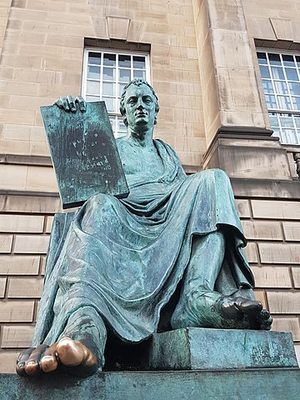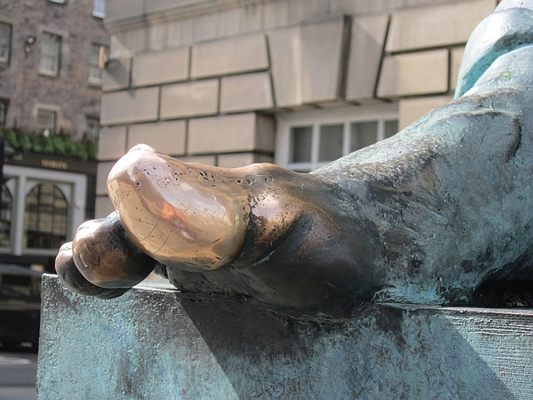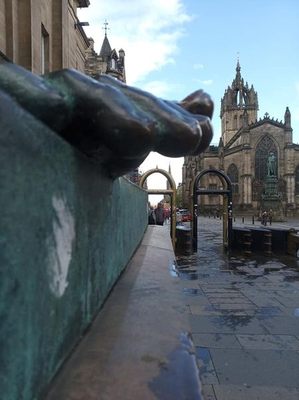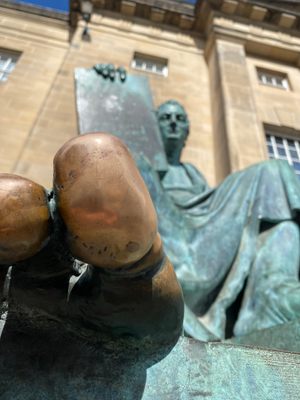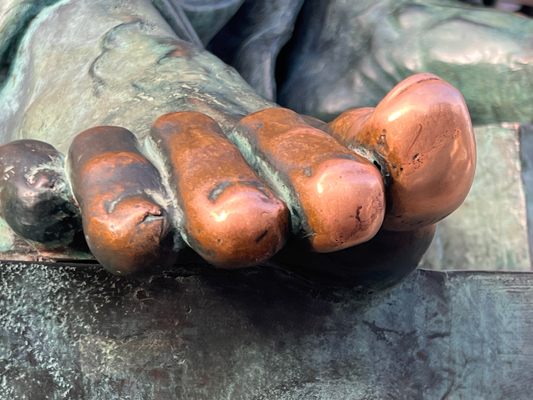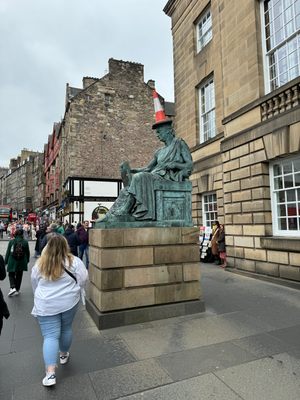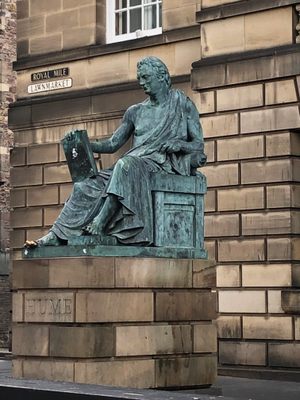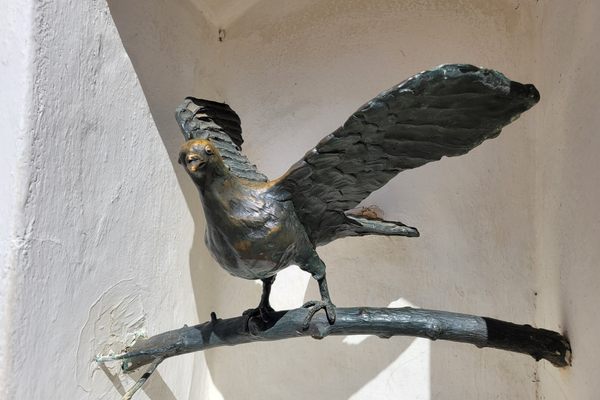About
Local tradition dictates that the touch of David Hume’s toe will bring good luck, though the practice ironically defies the philosopher’s vehement rejection of superstition. Due to the statute's placement to the High Court, suspected criminals are also said to rub the prodigious digit to help with their case. Since 1997, when the public statue was erected at the top of Edinburgh's Royal Mile, it’s become an international point of interest for handsy passersby.
Shortly after artist Alexander "Sandy" Stoddart’s sculpture of the great Scottish Enlightenment thinker was installed in front of the High Court Building, philosophy students began making pilgrimages to his likeness and rubbing his toe for luck and wisdom. Over two decades later, hordes of tourists crowd around Hume’s foot at all times of day, rendering the sacred toe a shiny golden sphere from all the contact.
This popular Edinburgh landmark portrays Hume (1711 - 1776) as an ancient Greek philosopher. While he was neither ancient nor Greek, Hume was also an influential historian, economist, and writer who lived in the Scottish capital from 1711 till his death in 1776. He is buried in the local Old Calton Cemetery, (https://www.atlasobscura.com/places/old-calton-cemetery)
One of the most influential figures to come out of the Scottish Enlightenment, Hume was invested in the natural sciences, the necessity of government, and empirical observation. In staunch opposition to superstition, which "rouses the vain fears of unhappy mortals,” he wrote in his six-volume History of England, Hume would likely frown upon his statue's ritual significance.
The statue has come under fire with the progressive Black Lives Matter movement. Hume has been attacked for his beliefs involving race relations. He has been quoted as saying; " I am apt to suspect the negroes to be naturally inferior to whites. There was never a civilized nation of any other complexion than white, nor even any individual eminent in action or speculation."
Related Tags
Know Before You Go
You can walk by the statue at any time, though be aware that crowds tend to gather around his shiny toe. It is not advised to rub any statue, as this causes damage and wear.
Be sure to take a peek behind the statue to get a glimpse of 'Sandy' Stoddart's depiction of the Greek God, "Helios", illustrating the concept of Enlightenment. His head is surrounded by a nest of snakes representing anti-intellectualism.
Flavors of Scotland: Beyond the Haggis
Smoked seafood, single malt whisky, and warm hospitality.
Book NowCommunity Contributors
Added By
Published
November 26, 2018
Sources
- https://www.iep.utm.edu/hume/#H8
- https://www.college.columbia.edu/core/content/statue-david-hume-royal-mile-edinburgh-edinburgh-born-artist-alexander-stoddart-unveiled-199
- https://harvardmagazine.com/2015/08/how-clean-is-john-harvard
- https://www.scotsman.com/news/hume-giant-of-the-enligh-toe-nment-1-735918
- http://curiousedinburgh.org/2017/09/19/statue-of-david-hume/

